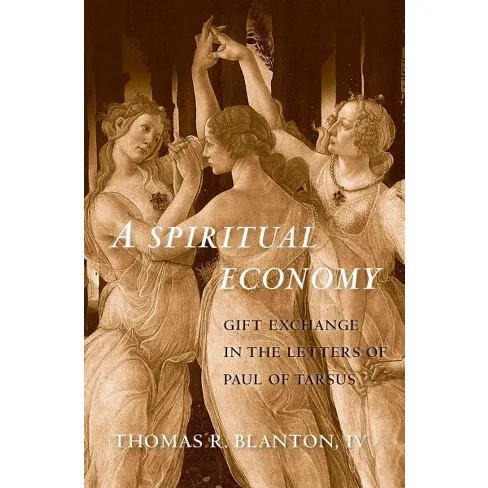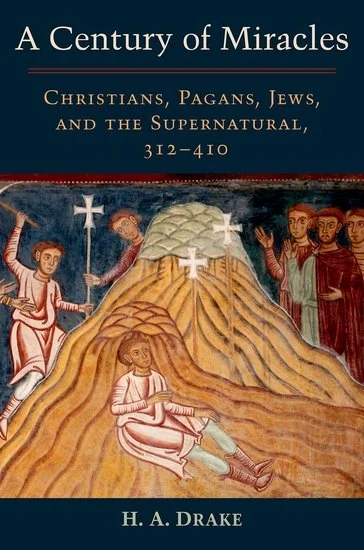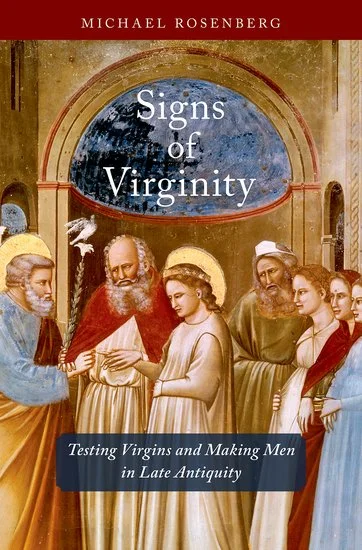James Tucker reviews Michael Stone’s Secret Groups in Ancient Judaism: “An analysis of the insider and outsider sources can illuminate how secrecy and esotericism were realized apropos the social practices of initiation, graded revelation, and hierarchical structure.”
Read MoreBook Note | Christian Martyrs under Islam
Sahner’s book fills a noteworthy gap in studies of martyrdom, which have generally been limited to the earliest centuries of Christianity and have ignored later developments.
Read MoreBook Note | The Origins of Midrash
Book Note | Hypatia: The Life and Legend of an Ancient Philosopher
Watts ends the volume with a chapter on such modern representations of Hypatia, which move already suggests his aim: to bracket the legend long enough to catch sight of the life that inspired it.
Read MoreBook Note | The New Testament in Byzantium
This volume, replete with color images and detailed charts, is both a resource and an invitation for further research. The range of expertise offered by the volume’s contributors testifies to the interdisciplinarity that animates Byzantine Studies.
Read MoreBook Note | Inconsistency in the Torah
In Inconsistency in the Torah, Joshua A. Berman turns the critical lens on source criticism itself, arguing that it is built upon several epistemological flaws and illustrating these with a variety of case studies.
Read MoreBook Note | Assembling Early Christianity: Trade, Networks, and the Letters of Dionysios of Corinth
Cavan Concannon’s Assembling Early Christianity: Trade, Networks, and the Letters of Dionysios of Corinth examines the traces of an understudied bishop to draw larger conclusions about how early Christianities effloresced and dissolved over time.
Read MoreBook Note | Journeys in the Roman East
Tabula Peutingeriana
Tabula Peutingeriana
“Like a Roman idol marking a crossroads in a way that makes visible the danger and domination that was always there, focusing on travel allows writers ancient and modern a vantage point on interplays between materiality and ideology that otherwise might slip by us.”
Read MoreBook Note | Trade and Taboo: Disreputable Professions in the Roman Mediterranean
In fact, Bond argues, it is in part because of the indispensability of these professions that they were so stigmatized. The lowbrow, servile nature of these labors disqualified members of the elite from practicing them, but the dependency of civic institutions and day-to-day well-being upon them brought great wealth and power to those within the trade.
Read MoreBook Note | Resurrection of the Dead in Early Judaism
“As Elledge’s book capably demonstrates, it is the diversity, complexity and adaptability of resurrection belief—the very attributes that make it so difficult for scholars to pin down—that characterized and facilitated its growth in early Jewish thought.”
Read MoreBook Note | A Spiritual Economy: Gift Exchange in the Letters of Paul of Tarsus
A Spiritual Economy is a helpful addition to recent studies in gifts in the letters of Paul, and its multidisciplinary engagement contributes to the study of religion in antiquity and to broader conversations in history, sociology, and anthropology about gift exchange.
Read MoreBook Note | The Archaeology of Death in Roman Syria: Burial, Commemoration, and Empire
Whereas most archaeologists of Roman Syria focus on discrete regions, de Jong is the first to undertake a systematic study of burials from across the province.
Read MoreBook Note | Exegeting the Jews: The Early Reception of the Johannine “Jews”
But decoding slanderous language is not just a complicated task for modern scholars; the Gospel of John’s earliest interpreters also chewed over the anti-Jewish language in the text. In Exegeting the Jews, Michael Azar examines the earliest reception of John’s anti-Jewish language.
Read MoreBook Note | Rabbis and Classical Rhetoric: Sophistic Education and Oratory in the Talmud and Midrash
“Whether they received these forms from Cicero or came to them independently, the fact that the rabbis are not alone in producing these forms makes clear that the strategy is effective, and Hidary’s rhetorical analyses ably show what that strategy is. A literary work need not be efficient or conclusive to be persuasive.”
Read MoreBook Note | Not All Dead White Men
Sarah Bond reviews Donna Zuckerberg’s Not All Dead White Men: “A new generation of classicists, archaeologists, and premodern historians have begun to realize that an insulated approach to scholarship is itself a form of privileged monasticism that we can no longer retreat to. In Not All Dead White Men, Zuckerberg looks into the crevices of the internet and into academia with a jussive command: “Fiat lux” (Let there be light). It is up to us to keep the lights on.”
Read MoreBook Note | A Century of Miracles: Christians, Pagans, Jews, and the Supernatural, 312-410
Framing his book with the two great miracles of Constantine and Theodosius, Drake attempts to tease out exactly how this discourse functioned in late antiquity, especially for Christians.
Read MoreBook Note | Monasteries and the Care of Souls in Late Antique Christianity: Cognition and Discipline
In considering the monastic mind(s) of late antiquity, Paul Dilley rejects models entrenched in a Cartesian dualism—opting instead to explore modes of embodied cognition. He proposes that the cognitive training practiced by early Christian monks led to the “gradual acquisition of a new and particularly monastic theory of mind.”
Read MoreBook Note | Rabbinic Tales of Destruction
“Beautifully written and clearly organized, the strength of Belser’s method for reading rabbinic tales is in not fitting the Bavli into any one theoretical framework, but rather in allowing her hermeneutic lenses to shift along with the text.”
Read MoreBook Note | Signs of Virginity
Rosenberg’s book sets out to examine rabbinic paradigms of how virgin women’s bodies work, how the loss of that virginity happens, and therefore, what evidence proves the existence of virginity.
Read MoreBook Note | The Jewish Dietary Laws in the Ancient World
“To briefly sketch some of Rosenblum's findings, we see that Greek and Roman sources are often perplexed by or antagonistic to these laws, Hellenistic Jews justify the laws via allegory, reason, and revelation, Rabbinic sources only begin to provide justifications beyond revelation with the Amoraim, and later Christian sources return to allegory, while denying the literal adherence to these prohibitions.”
Read More


















